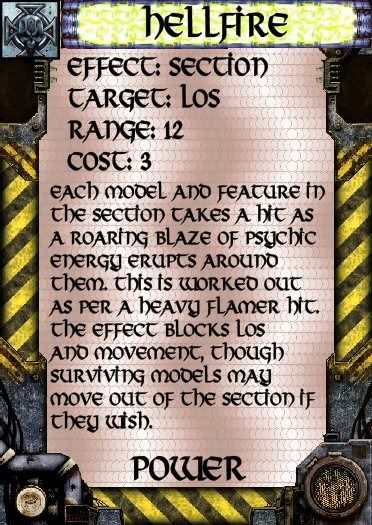Before delving into melee, I feel I must first touch
on another topic: what parts of Space Hulk do I view as core elements of the
game? Now, while I will be going more in depth in the near future looking at
each of the previous editions and many of the supplements, for the time I will
summarize it here, so that I may get back to the discussion of close assault on
Wednesday.
First Edition Space Hulk was masterfully done, and elegant
in its simplicity. Death Wing added more variety by way of missions and Space
Marine weapons without really adding difficulty. Finally, Genestealer added
Hybrids, which brought an interesting new element to the game, but also helped
to balance it. However, the expanded psychic rules introduced slowed down and
muddied gameplay.
First Edition extras from White Dwarf generally
ended up in new expansions, and in general were high quality. The real exception
here was the campaign in WD 158, which made Space Wolf terminators somehow more
badass than all others, giving them 5 AP and +1 to melee. Reminds me of a time
when a certain 40K race got entirely eaten by Tyranids because of favoritism
and internal politicking…
First Edition articles appearing in the Citadel Journal
were another matter. These were obviously playtested sparingly, and written
more for the sake of having content then expanding the game in a balanced
manner. While some interesting elements were added, the fact that anything
remotely resembling point values or a way to use these new models in the game regularly
were not included again showcased this rather well.
Second Edition took a simple but effective game and
dummed it down for marketing purposes. White Dwarf supplements attempting to
re-introduce Deathwing weapons in Second Edition is a perfect example of how
poorly this worked. A number of nifty new missions were added throughout its lifespan,
however, as well as the simple yet clever rules for using air ducts.
Third Edition in many ways went back to the classic
rules of First Edition. Some simple changes were made that were not necessary but
made the game simpler for new Marine players, such as jamming/unjamming on
overwatch, sustained fire, and line of sight. Other minor tweaks were also made
for no apparent reason that interfered with using the full rules set of First
Edition, such as Guard and the rules for wounding a Broodlord. However, while
most of the changes made were either unneeded or unbalancing, the updated take
on psychic rules was decidedly well done, even if only used by the Space
Marines.
So, in summary, I view (in general) the following
elements as being the core foundation of Space Hulk: XT.
First Edition, Deathwing, Genestealer (minus the
psychic cards) and the majority of White Dwarf content, as well as a rare few selected
elements from Citadel Journal (such as the effect of using a power axe).
Second Edition Terminator models, because they’re
easy to make stop-motion movies with.
The basic elements presented in Third Edition for
psychic rules (which I have already put a good deal of work into expanding, as
seen by the Hellfire card below).
As I stated, I will be addressing each Edition separately
and in greater depth in the future. However, if you have any questions or
comments about my brief synopsis above, please feel free to ask and I shall
elaborate further.
-M
Wednesday: Melee combat. No, for real this time!

No comments:
Post a Comment